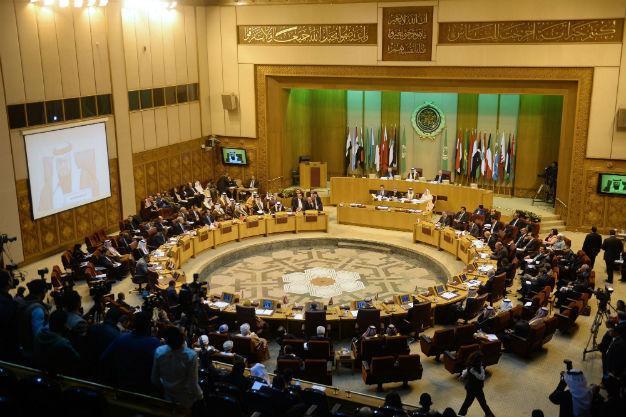Arab League denounces Turkish troop deployment in Iraq
CAIRO

AFP photo
The foreign ministers of the Arab League condemned on Dec. 24 a Turkish military deployment in Iraq as an “assault” on the country’s sovereignty, demanding Ankara withdraw the forces.The Turkish deployment “is an assault on Iraqi sovereignty and a threat to Arab national security,” they said in an Arab League statement after meeting at the pan-Arab bloc’s Cairo headquarters, according to AFP.
Arab League deputy chief Ahmed Ben Heli read out the statement at a press conference, in which he added that the Turkish troops “increased tumult in the region.”
Turkey announced on Dec. 19 that it would continue to withdraw troops in a bid to de-escalate a bitter row with Baghdad and following a call from U.S. President Barack Obama.
Earlier this month, Turkey deployed additional troops to the Bashiqa camp in the country’s north where it has a long-running training program for forces battling the Islamic State of Iraq and the Levant (ISIL). The camp is located around 20 kilometers away from Mosul, which is held by ISIL militants.
But at the Cairo meeting, Iraqi Foreign Minister Ibrahim al-Jaafari said Turkey has insisted on “using the term ‘redeployment’.”
“They [the troops] would be relocated from one Iraqi area to another Iraqi area. Sovereignty is sovereignty, and the territories are one,” he said.
Later at a news conference, the diplomat said Turkey must withdraw its troops as soon as possible, but said he understood it could take them “several days” to do so.
Ankara had said the deployment was routine and necessary to protect the trainers, while Baghdad said it was unauthorized and protested to the United Nations Security Council to use its force to make Turkey pull its forces from Iraq.
Meanwhile, Iraqi Prime Minister Haider al-Abadi said Dec. 25 that Iraq’s armed forces will move to retake the major northern city of Mosul from ISIL once they capture the western city of Ramadi.
Capturing Mosul would deprive the militant group of its biggest population center in both Iraq and Syria, effectively abolishing the state structure of ISIL in Iraq, depriving it of a major source of funding and dealing a blow to its influence.
The capture of Ramadi would give the army a major psychological boost in its move toward Mosul.
The cities are about 420 km apart by road.
Iraqi forces started an attack on Dec. 22 to dislodge ISIL militants from the center of Ramadi, the last district under their control in the city they had captured in May.
ISIL seized Mosul, Iraq’s second-largest city, in 2014, in an offensive that forced government forces to abandon a third of Iraqi territory.
The group declared a caliphate over the Iraqi and adjacent Syrian Sunni populated territory it controls.
“The liberation of dear Mosul will be achieved with the cooperation and unity of all Iraqis after the victory in Ramadi,” Abadi said in a statement on the state media website on Dec. 25.
















